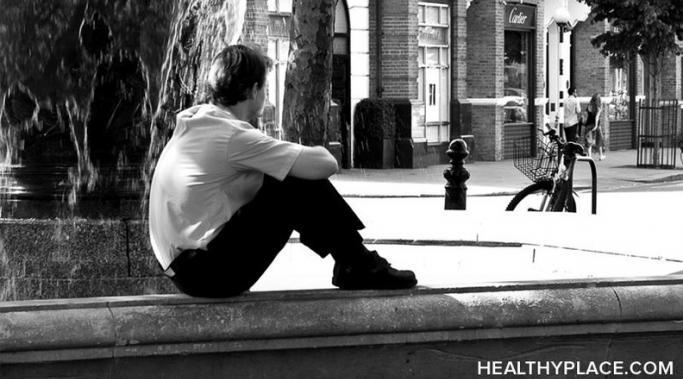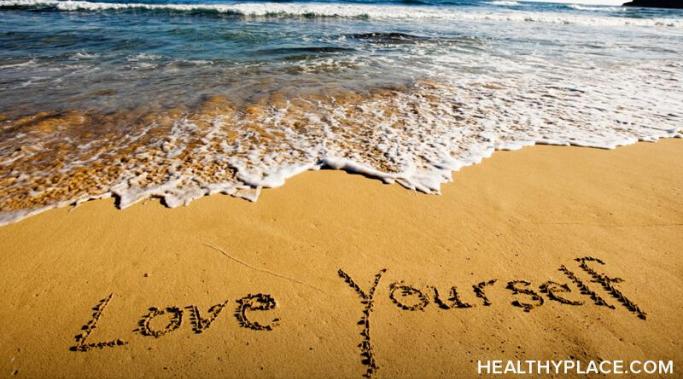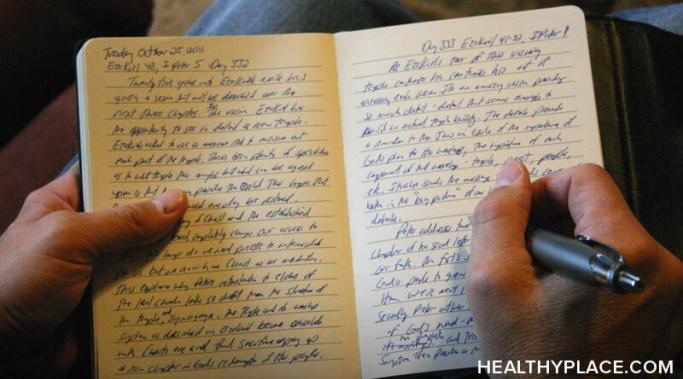Blogs
One thing life guarantees is that there will be changes in recovery. As fall rolls in, I've reflected on all the changes that come with a new season (temperature, holidays, sunlight, etc.) Life is full of changes, whether environmental (like the seasons), personal, or professional. Changes are difficult for anyone but can be especially difficult for those recovering from a mental illness. So, during change, I ask myself, "What can I do to find a sense of stability and handle my anxiety?"
October 8th was International Lesbian Day, and in celebration of this day, I thought I would cover one of my favorite topics: lesbian breakups. Breaking up is hard, no matter your gender or sexuality. I know because I've lived all along the gender and sexuality spectrum, and I've survived a lot of breakups. I've had breakups with straight men, gay men, bisexual men, bisexual women, and, oh, lesbians. Hands down, the most challenging breakup I've had has been with my most recent lesbian-identified relationship.
We each have successes in our lives, but can we use our successes to increase self-esteem? We all have made goals and achieved them, whether small or large. Yet oftentimes, we overlook these successes when life gets to be overwhelming. Have you forgotten your own successes, or even your inherent worth, when life gets to be too much? In today's post, I would like to remind all of us that self-esteem can be boosted by our successes.
Initially, facing verbal abuse made me angry. Each individual can have many different experiences when facing verbal abuse. These circumstances can create a multitude of side effects, ranging from mild to extreme. In some cases, victims of verbal abuse may be angry, lash out at others, and continue the unhealthy cycle.
As a recovering gambling addict, I understand that vulnerabilities play a significant role in amplifying the allure of gambling. Addiction knows no bounds; it is not limited to age, gender, financial standing, or background. However, some are more susceptible to gambling addiction due to their vulnerabilities.
It can be hard to remember that hope is medicine. When someone is first diagnosed with a mental health condition, it can be difficult to accept, and it can seem as if the life you once knew is no longer possible or accessible to you. That's what it was like when I was first diagnosed with bipolar disorder with psychotic features. I had a similar reaction when I was later diagnosed with chronic paranoid schizophrenia. But now I know that even with schizophrenia, hope is medicine.
It's important to manage boundaries in borderline personality disorder. I'm someone living with borderline personality disorder (BPD), and I've got a tendency to enmesh with my loved ones. Enmeshment in relationships refers to a dysfunctional pattern of relating where boundaries between individuals are unclear, and personal identities become blurred or fused together. In enmeshed relationships, individuals may have difficulty distinguishing their own thoughts, feelings, and needs from those of their partner or family member. In my case, my BPD causes me to fear rejection the closer I get to someone. The temptation to blend in and go with the flow just to secure acceptance is real. But here's where managing boundaries in BPD swoops in to save the day.
In my experience, eczema and mental health can be linked. In my early to mid-20s, I enjoyed wearing makeup and scented lotions. I didn't think much about the chemicals in these products because there didn't appear to be a reason for concern. But when I was 27, I developed painful eczema rashes that changed my perception of chemicals and mental health. To learn about my experience with eczema and how it affected my mental health, continue reading this post.
What comes to mind when you imagine practicing meditation? Is it sitting cross-legged in silence as the outside world races by? Is it clearing your mind of all thoughts in the hope of attaining enlightenment? The truth is that meditation practices come in many different forms and can provide various benefits for anyone seeking inner calm and self-discovery.
The idea of healing trauma through writing might feel too good to be true. When I was a kid, I used to sit on my bed in the moonlight and craft fictional stories in my mind. I'd spend Friday nights with fairy lights decked across my room and draft poetry and lyrics about my current situation. I'd journal before falling asleep to release any fear or obsessive thoughts that were clouding my head. Little did I know I was healing trauma through writing.









